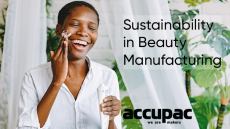Study suggests efficacy of non-antibiotic acne treatment
effective non-antibiotic treatment for acne that may help to
provide a solution to the problem of antibiotic resistance in acne
causing bacteria.
Researchers at the Department of Dermatology, Hammersmith Hospital, London, investigated a lotion containing triethyl citrate and ethyl linoleate, with findings suggesting a positive effect on acne vulgaris.
Current treatments for acne include topical antibiotic, antimicrobial and retinoid applications, and oral retinoids and antibiotics, all with potential side effects.
Many topical applications lead to severe dryness and discomfort of the skin, whilst antibiotic treatments can take up to 6 weeks before they begin to have an effect.
Oral retinoids, on the other hand, represent the most effective form of treatment currently available.
However they can cause dangerous complications in pregnant women and have been linked to severe depression in some patients.
Furthermore, an increasing problem is the emergence of antibiotic resistant acne causing bacteria due to long-term prescriptions in acne patients, explaining why effective non antibiotic treatments would be advantageous.
The recent study involved forty volunteers between the ages of 16 and 45 with mild to moderate acne, who were randomly assigned treatment with the active lotion and treatment with the vehicle.
The patients were treated with either the vehicle or the active lotion twice daily, for three months, with skin quality being reviewed at 4, 8 and 12 weeks.
In addition the skin's sebum production was measured at the beginning and the end of the study.
The researchers found that the active lotion performed significantly better than the vehicle leading to a marked improvement in skin quality as measured by the Leeds revised acne grading system.
The Leeds system has become an established grading system in many acne trials and involves matching the acne severity with photos of patients and assigning a score between 1 and 12.
Furthermore, treatment with the active lotion led to a fall in sebum production of an average of 53 per cent by the end of the study.
In addition the novel lotion showed effects after only four weeks whereas many of the more traditional treatments can take much longer to have en effect which can lead to poor perseverance with the treatment.
The authors are confident that the lotion could provide a useful addition to existing treatments for acne stating that "our study suggests that the new lotion containing triethyl citrate ethyl linoleate is a significant new treatment for acne vulgaris".
Source : British Journal of Dermatology Volume 157 pp 569-574 "Double-blind, randomized, placebo-controlled study of a lotion containing triethyl citrate and ethyl linoleate in the treatment of acne vulgaris" A. Charakida, M. Charakida and A.C. Chu












